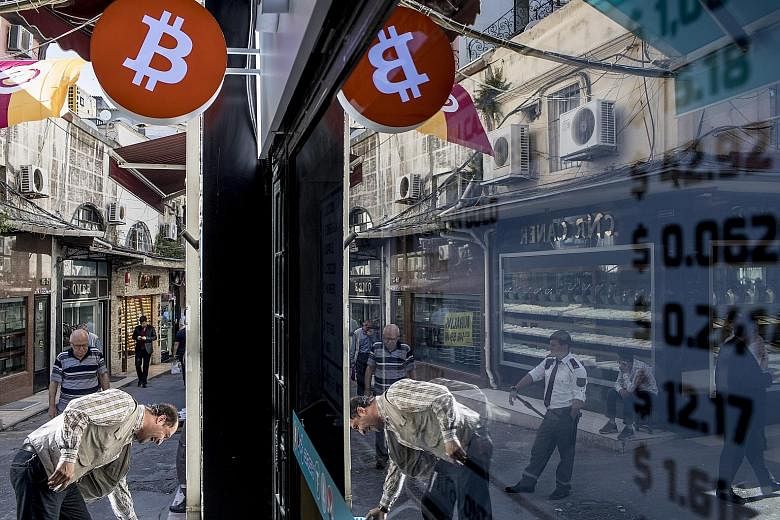LONDON • Bitcoin, the star of the cryptocurrency world, is widely seen as a freewheeling tool as open as the Internet itself.
But analysts have cast doubt on the veracity of that perception, highlighting that the bulk of bitcoin is in fact heavily concentrated in the hands of a powerful few.
Some 1,000 bitcoin holders - out of a total 11 million - hold 35.4 per cent of currency, according to BitInfoCharts.
These bitcoin "whales" - a word popularly used for big money players in financial markets - "literally control the currency", said cryptocurrency expert Bob McDowall. They can "dictate monetary policy, which is normally the function of a central bank or a government".
Unlike central bank-issued denominations, virtual currencies are produced, or "mined", by banks of computers solving complex algorithms and freely traded online.
The other key difference is that the number of bitcoins in existence can never exceed 21 million. There are currently about 17 million bitcoins in circulation. Bitcoin's surge in value from a few cents to a peak in December last year of US$19,500 turned some of its first investors into billionaires.
The BitInfoCharts study also found that the top 10 account holders held 5.96 per cent of bitcoins.
Experts cautioned that the data should be taken with a pinch of salt, as several individuals could be behind a single account and one person could hold several accounts.
In a 24-hour period between Monday and Tuesday, the 100 biggest bitcoin transactions out of 200,000 accounted for 24 per cent of the money volumes - an unimaginable level of concentration compared to other markets.
"In the currency market, for example, it's such a huge market with so many transactions in a day that a pure actor can't have any influence on a market," Mr Craig Erlam, an analyst for currency trading platform Oanda, told Agence France-Presse.
Big bitcoin players, by contrast, can hold a lot of sway over the market. To try and prevent excessive falls in the value of the currency, observers believe that the "whales" may be checking with one another first before putting in major orders, leading to suspicions of fraud in this unregulated market. The US authorities last month opened a criminal investigation into possible market manipulation of bitcoin and other cryptocurrencies, suspecting traders of "spoofing" - putting in false orders and quickly withdrawing them to move the currency.
Since the end of last year, the concentration of bitcoins has decreased, according to a study by think-tank Chainalysis.
Several long-term investors have sold their bitcoins and a new type of player has entered the scene - speculators, who tend to hold fewer bitcoins but carry out more transactions.
Meanwhile, bitcoin fell to a two-month low on Tuesday, sliding in three of the last four sessions on regulatory and security concerns after the weekend hacking of South Korean cryptocurrency exchange Coinrail. The original virtual currency is nearing its lowest level of the year of just under US$6,000 on the Bitstamp platform.
So far this year, bitcoin is down nearly 53 per cent, after soaring more than 1,300 per cent last year.
On Sunday, Coinrail, a relatively small cryptocurrency exchange in South Korea, said its system was hit by "cyber intrusion", causing a loss of about 30 per cent of the coins traded on the exchange.
AGENCE FRANCE-PRESSE , REUTERS

